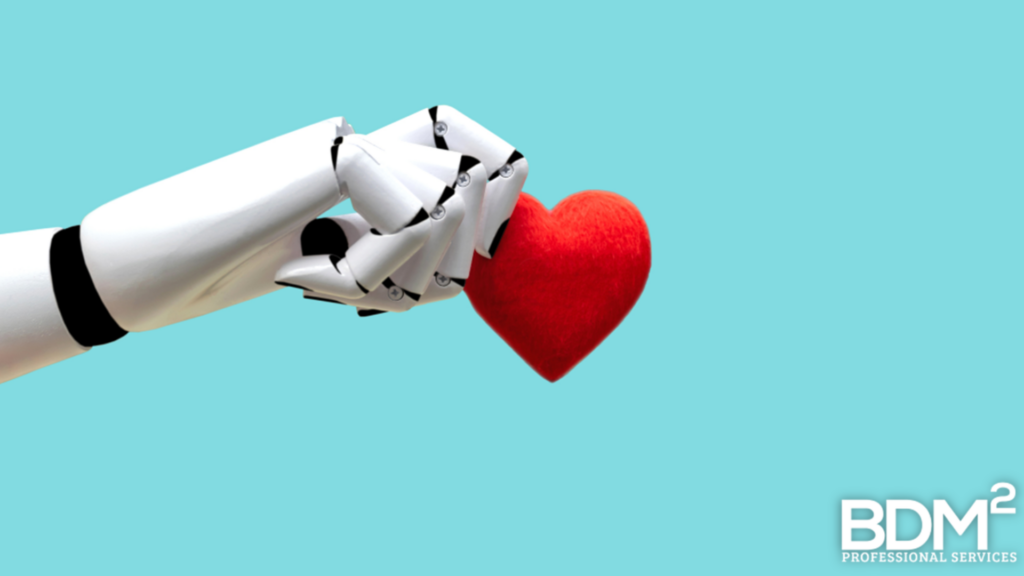
Understanding Emotional Intelligence
Emotional Intelligence (EI) has been a buzzword in the human resources and leadership realms for years, credited with improving interpersonal skills, team dynamics, and overall job performance. As technology advances, particularly in the field of Artificial Intelligence (AI), there is a growing interest in integrating EI into AI systems. This integration aims to create more intuitive, empathetic, and effective AI applications that can significantly impact various sectors.
Emotional Intelligence, often abbreviated as EI or EQ (Emotional Quotient), refers to the ability to recognize, understand, and manage our own emotions and the emotions of others. Daniel Goleman, a prominent psychologist, popularized the concept in the 1990s, identifying five key components: self-awareness, self-regulation, motivation, empathy, and social skills.
These components are crucial for effective communication, leadership, and conflict resolution. Recently, I attended a soft skills class that highlighted the importance of EI in effective communication. This experience underscored how developing EI can enhance our interactions both personally and professionally. When applied to AI, the goal is to create systems that can not only process data but also understand and respond to human emotions in a meaningful way.
The Integration of EI in AI
- Enhanced Human-AI Interaction
One of the primary benefits of integrating EI into AI is the enhancement of human-AI interaction. Traditional AI systems can process and analyze vast amounts of data but often lack the ability to interpret and respond to emotional cues. By incorporating EI, AI systems can better understand the emotional states of users and respond more appropriately.
For example, AI customer service agents with EI capabilities can detect frustration in a customer’s voice and adapt their responses to be more empathetic and supportive. This can lead to higher customer satisfaction and a more positive user experience.
- Improved Mental Health Support
AI applications in mental health have seen significant advancements with the integration of EI. Virtual therapists and chatbots, such as Woebot and Replika, use natural language processing and sentiment analysis to provide emotional support and cognitive behavioral therapy. These AI systems can recognize emotional distress in users and offer timely interventions, making mental health support more accessible.
A study by Stanford University found that AI-powered therapy apps could significantly reduce symptoms of depression and anxiety. “AI has the potential to scale mental health support in ways that traditional methods cannot,” says Dr. Alison Darcy, founder of Woebot Labs (Replicon).
- Enhanced Educational Tools
In education, emotionally intelligent AI can create more personalized and engaging learning experiences. By understanding students’ emotional states, AI tutors can adjust their teaching methods to better suit individual needs. This can lead to improved learning outcomes and greater student satisfaction.
A report by the World Economic Forum highlights the importance of EI in education technology: “Emotionally intelligent AI can create a supportive and adaptive learning environment, helping students stay motivated and engaged” (WorkStatus).
- Better Healthcare Outcomes
In healthcare, emotionally intelligent AI can improve patient care and outcomes. AI systems that can recognize and respond to patients’ emotional states can enhance the doctor-patient relationship, leading to better diagnosis and treatment adherence.
Dr. Fei-Fei Li, a renowned AI researcher, emphasizes the potential of EI in healthcare: “Emotionally intelligent AI can bridge the gap between clinical expertise and patient empathy, providing a more holistic approach to healthcare” (Simplilearn.com).
Challenges in Integrating EI into AI
While the benefits are clear, integrating EI into AI is not without challenges. Emotional intelligence involves complex and nuanced human emotions that are difficult to quantify and program into machines. Here are some of the key challenges:
- Emotion Recognition
Accurately recognizing human emotions is a fundamental challenge for emotionally intelligent AI. Emotions can be expressed in various ways, including facial expressions, voice intonations, and body language. AI systems must be trained to detect and interpret these cues accurately.
Researchers at MIT have been working on advanced emotion recognition algorithms that use deep learning to analyze facial expressions and voice patterns. However, these systems are still far from perfect and can struggle with cultural and individual differences in emotional expression (Nimblework).
- Ethical Considerations
The integration of EI in AI raises several ethical concerns. For instance, how should AI systems handle sensitive emotional data? Ensuring the privacy and security of users’ emotional information is crucial to prevent misuse and protect user trust.
Additionally, there is the risk of emotional manipulation. AI systems with advanced EI capabilities could potentially influence users’ emotions and behaviors in harmful ways. Establishing ethical guidelines and regulations is essential to mitigate these risks.
- Bias in Emotion Detection
Emotion detection algorithms can be biased, reflecting the biases present in the training data. For example, an AI system trained primarily on data from Western cultures may not accurately recognize or interpret emotions from people of other cultures.
To address this issue, researchers are working on creating more diverse and representative datasets. “It’s crucial to ensure that emotion recognition systems are trained on diverse data to avoid perpetuating biases and ensure fair and accurate outcomes,” says Dr. Rana el Kaliouby, CEO of Affectiva .
The Future of EI in AI
Despite the challenges, the future of emotionally intelligent AI is promising. Continuous advancements in machine learning, natural language processing, and cognitive computing are paving the way for more sophisticated and empathetic AI systems.
- AI in Customer Service
Emotionally intelligent AI is expected to revolutionize customer service. AI-powered chatbots and virtual assistants will be able to handle complex customer interactions with empathy and understanding, providing personalized and satisfactory solutions.
- Personalized Marketing
In marketing, EI-integrated AI can enhance personalization by understanding customers’ emotional responses to different products and advertisements. This can lead to more effective marketing strategies and higher customer engagement.
- Workplace Well-being
Emotionally intelligent AI can play a significant role in improving workplace well-being. AI systems can monitor employees’ emotional states and provide timely support, helping to reduce stress and burnout. This can lead to a healthier and more productive work environment.
- AI Companionship
AI companions, such as robots and virtual assistants, are becoming increasingly popular. With advanced EI capabilities, these companions can provide emotional support and companionship to individuals, particularly the elderly and those living alone.
Conclusion
The integration of emotional intelligence into artificial intelligence represents a significant leap forward in the development of more human-centric AI systems. Emotionally intelligent AI has the potential to transform various sectors, including customer service, mental health, education, and healthcare, by providing more empathetic, personalized, and effective solutions.
While there are challenges to overcome, the ongoing advancements in AI technology and a commitment to ethical practices and diversity will help realize the full potential of emotionally intelligent AI. As we move forward, the collaboration between AI researchers, ethicists, and industry experts will be crucial in shaping a future where AI not only processes information but also understands and responds to human emotions in meaningful ways.
By embracing the power of emotional intelligence, we can create AI systems that truly enhance human well-being and create a more empathetic and connected world.
Click here, to discuss with one of our experts how to properly integrate E.I & A.I in your project.
References:
- Stanford University study on AI therapy apps.
- World Economic Forum report on EI in education technology.
- Dr. Fei-Fei Li’s insights on EI in healthcare.
- MIT research on emotion recognition algorithms.
- Dr. Rana el Kaliouby’s comments on bias in emotion detection.
